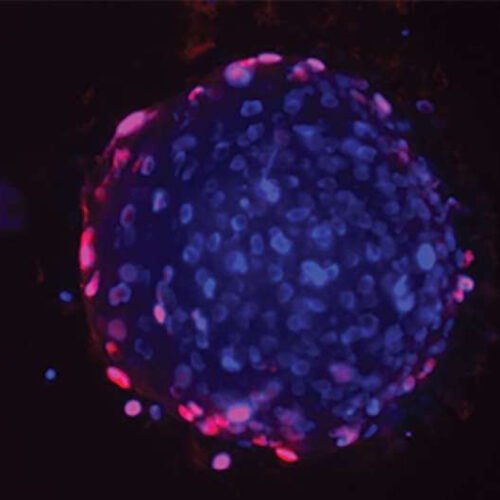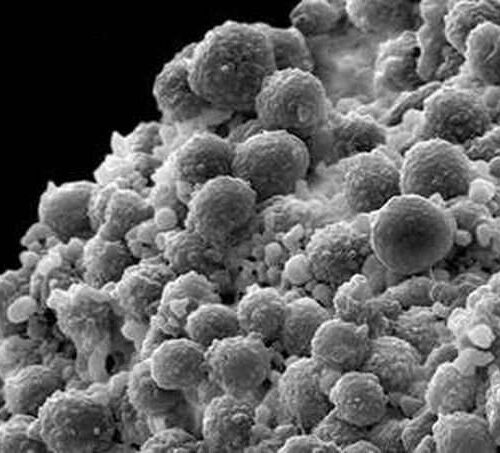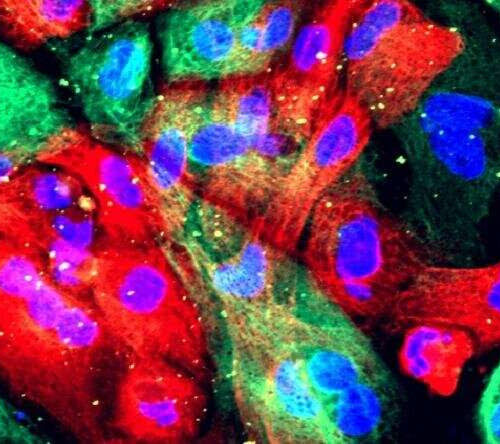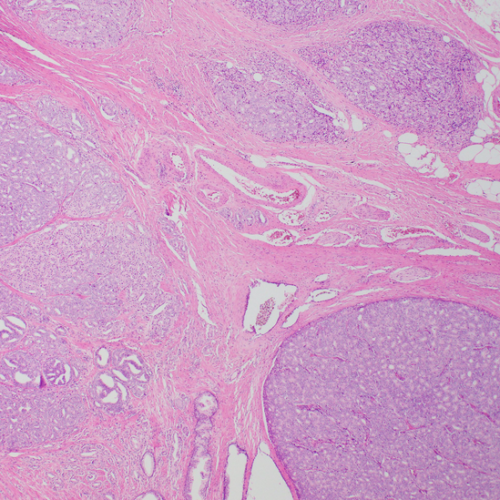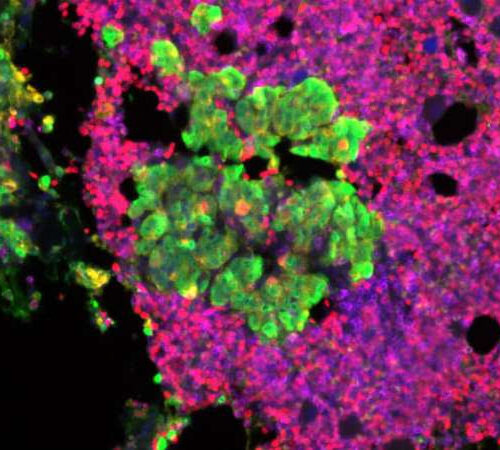by eLife A cell-by-cell tapestry of prostate cancer progression, which the authors created by applying a technique called UMAP to the entire dataset from their study. Credit: Germanos et al. (CC BY 4.0) Researchers have characterized prostate cancer cell dynamics at a single-cell resolution across the timespan of the disease—from its beginning to the point...
Tag: <span>Prostate cancer</span>
Cambridge scientists develop a comprehensive tool for predicting individual’s risk of prostate cancer
Reviewed by Emily Henderson, B.Sc. Dec 12 2022 Cambridge scientists have created a comprehensive tool for predicting an individual’s risk of developing prostate cancer, which they say could help ensure that those men at greatest risk will receive the appropriate testing while reducing unnecessary – and potentially invasive – testing for those at very low...
Electronic nose sniffs urine for traces of prostate cancer
By Rich Haridy December 04, 2022 e-nose technology for detecting prostate cancer is still in prototype form and requires further validation before broader clinical use Depositphotos New research from a team of scientists in Italy has reported successful early tests for an electronic nose system designed to sniff out prostate cancer biomarkers in urine. The...
Drug triggers immune cells to attack prostate cancer
by Julia Evangelou Strait, Washington University School of Medicine A drug compound stimulates immune cells to attack prostate tumors, according to new research from Washington University School of Medicine in St. Louis. Shown is a human prostate cancer organoid, a small 3D structure that serves as a model of prostate tumors. When the organoid is...
Genetic score predicts risk of lethal prostate cancer
by University of California – San Diego A scanning electron micrograph depicts a clump of prostate cancer cells. Credit: Cell Image Library Tapping into the Million Veteran Program, an ongoing national research effort to learn how genes, lifestyle and military exposures affect the health of participants, researchers at University of California San Diego School of...
Research team develops novel strategy to suppress prostate cancer growth
by Aaron Nieto, Baylor College of Medicine Prostate cancer cells. Credit: NIH Image Gallery Finding valuable therapeutic interventions for prostate cancer has long guided the research of Dr. Feng Yang’s lab at Baylor College of Medicine. In a study published in the Proceedings of the National Academy of Sciences, Yang’s team took a close look into...
New epigenetic markers for prostate cancer discovered
GARVAN INSTITUTE OF MEDICAL RESEARCH IMAGE: HISTOPATHOLOGICAL IMAGE OF A HIGH GRADE PROSTATE CANCER. CREDIT: PROF JAMES KENCH New epigenetic biomarkers to predict more aggressive forms of prostate cancer have been discovered by scientists at the Garvan Institute of Medical Research. The biomarkers can be used in combination with traditional clinical tools to predict if...
Alliance Foundation trials study finds combination hormonal therapy delivered in finite period improves PSA levels in patients with prostate cancer
ALLIANCE FOR CLINICAL TRIALS IN ONCOLOGY IMAGE: DR. RAHUL AGGARWAL IS THE LEAD INVESTIGATOR FOR PRESTO (AFT-19) AND CO-LEADER FOR THE GU MEDICAL ONCOLOGY PROGRAM AT THE UNIVERSITY OF CALIFORNIA, SAN FRANCISCO. CREDIT: UNIVERSITY OF CALIFORNIA, SAN FRANCISCO Boston, MA (September 9, 2022) – The Alliance Foundation Trials, LLC (AFT) will present data from PRESTO (AFT-19),...
Long-term benefit of radiotherapy confirmed in advanced prostate cancer
by Institute of Cancer Research Treated prostate cancer cells. Credit: Mateus Crespo/Professor Johann de Bono, the ICR Radiotherapy to the prostate alongside standard treatment can keep some men with advanced prostate cancer alive for longer without detriment to quality of life, long-term study results confirm. Previous results from the STAMPEDE trial—one of the largest ever...
Prostate cancer cases risk late detection due to misleading urinary focus
Men with early, curable stages of prostate cancer are missing opportunities to have their cancer detected because national guidelines and media health campaigns focus on urinary symptoms despite a lack of scientific evidence, say experts at the University of Cambridge. Over three-quarters (78%) of men diagnosed with the disease survive for over ten years. Still, this proportion...



